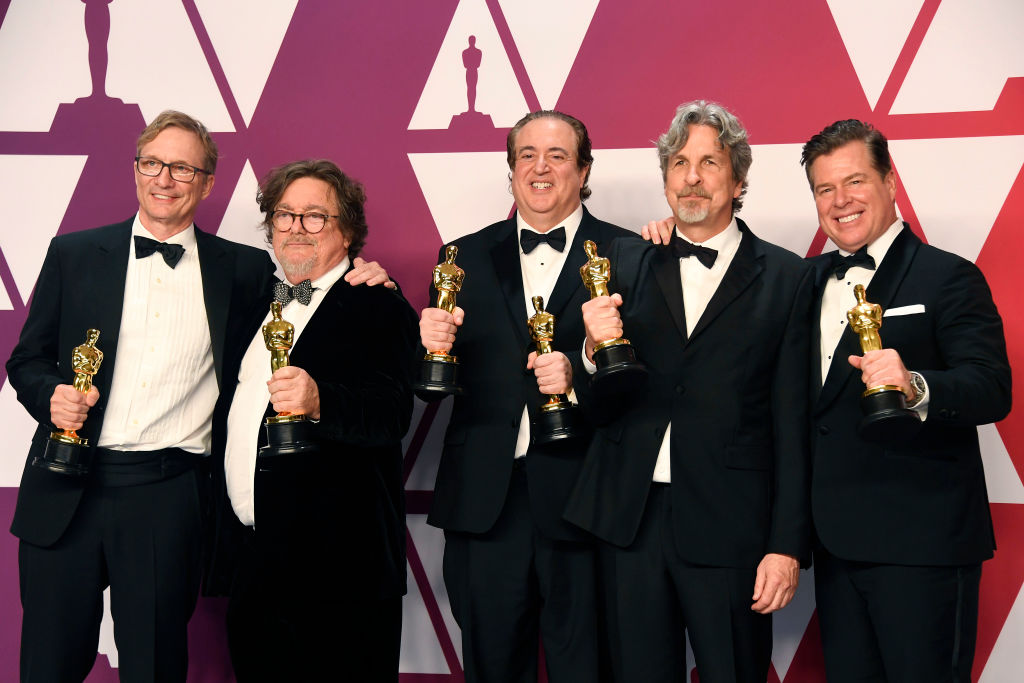It was a big night for Rami Malek and the Green Book team, and a big night for me too. My palms, closely shaved for the occasion, were sweatier than usual. My tux, freshly laundered and let out, suddenly tightened when the nominations were read out. I was afraid I’d be publicly humiliated, but it turned out that I was a winner. Yes, my Oscar tips were pretty accurate this year — until they weren’t.
I thought I’d factored more racial tokenism than a Bernie Sanders campaign video, and more political gesturing than a fundraising disco for the Democratic Socialists of America. But I got the balance of tokenism wrong. I thought ‘All the Stars’ from Black Panther would win Best Song, but the aptly titled ‘Shallow’ from A Star is Born took it as part of its goodie-bag of consolation prizes. In fact, Black Panther scored lower than expected in the tokenism stakes — deservedly winning Best Costume, but nothing major. The reason being that, apart from the ludicrously tokenistic award of Best Adapted Screenplay to Spike Lee, Green Book swept the rest of the tokens on a ludicrously tokenistic board.
Many people are appalled that a hackneyed and obvious drama that downplayed the central character’s gayness could win an Oscar in 2019. But I thought Bohemian Rhapsody deserved to win for Sound Mixing and Sound Editing. Admittedly, Green Book isn’t a masterpiece. Unlike Bohemian Rhapsody, it’s not even the kind of low-grade perennial that will take the edge off a long-haul flight five years’ from now. But did Green Book really deserve to have the title of its Wikipedia page changed to Lying White Guilt Trash, which is what happened after it won Best Picture? Did the always mediocre and chippy Spike Lee really have to storm off?
It wasn’t a complete surprise that Green Book won. It was one of eight nominations for Best Picture, so it always had a chance. If the critics, me included, had paid more attention to the box office, we might have foreseen that the Academy would identify Green Book as the sweet spot between the bottom line and the virtue signal. Spike Lee’s preposterous wrapping of Malcolm X in the Stars and Stripes shows that he wants to hit that spot too. If Lee was that disgusted by Green Book’s nomination, he could have stayed away, or refused his Oscar for Best Adapted Screenplay. Instead, he made a show of trying to escape from the clutches of an Academy that he’s spent his life trying to get into.
The show and the business is what Hollywood and the Oscars are all about. The vomituous political gesturing is a luxury, paid for by ticket sales. Green Book and Bohemian Rhapsody have done good business, despite reviews ranging from lukewarm to hostile. So the Oscar goes to the movies that will keep the sinking ship afloat for another year. The Oscar for Best Picture doesn’t go to Roma, because Netflix is the streaming upstart that’s hurting the old studios by killing movie theaters. But Best Director can go to Alfonso Cuarón, so the old studios can cash in by funding his next film.
The critics woke up angry that Green Book won. How dare they criticize the cinematic taste of civil-rights legend John Lewis. That’s more than problematic. It might even be deeply racist. At the LA Times, Justin Chang correctly describes Green Book as ‘glib and hucksterish, a self-satisfied crock masquerading as an olive branch’ — a description that might equally apply to any Spike Lee movie. But then Chang complains that Green Book ‘reduces the long, barbaric and ongoing history of American racism to a problem, a formula, a dramatic equation that can be balanced and solved’. What else does the film critic of the LA Times think Hollywood is for? A dramatic equation that doesn’t add up on the screen isn’t go to add up for the accountants either. And that means glib, very glib.
When Green Book came out, the Guardian called it a ‘charming Deep South road trip’, and preached that it served a ‘significant purpose’, to ‘remind white audiences of the difficulties faced by those of color’. This morning, the Guardian says that giving Best Picture to Green Book was a ‘slap in the face’ that ‘undid all the good work of a hitherto progressive show’. Until the final reel of the Oscars, the Academy had made ‘an obvious but admirable bid to give airtime to people of color’, and was ‘in step and progressive’. Because giving airtime on grounds of skin color, and giving prizes as rewards for ‘progressive’ attitudes, is what the Oscars should be about. Because the entire movie business, a sump of sleaze and exploitation, is morally good if it stays ‘in step’ with the loony-left control-freakery of our cultural commissars.
The most problematic thing about Green Book is that it’s a sloppy remake of Driving Miss Daisy which, as rich sources for plagiarism go, wasn’t exactly Battleship Potemkin. I should have understood the dramatic equation behind Green Book — Americans are troubled by the racist past, Americans believe in happy endings, Hollywood is the answer — and laid a bet on its victory. Those who don’t like what they saw last night should, as large numbers of more sensible viewers already have, turn off the Oscars.
Dominic Green is Life & Arts Editor of Spectator USA.

























